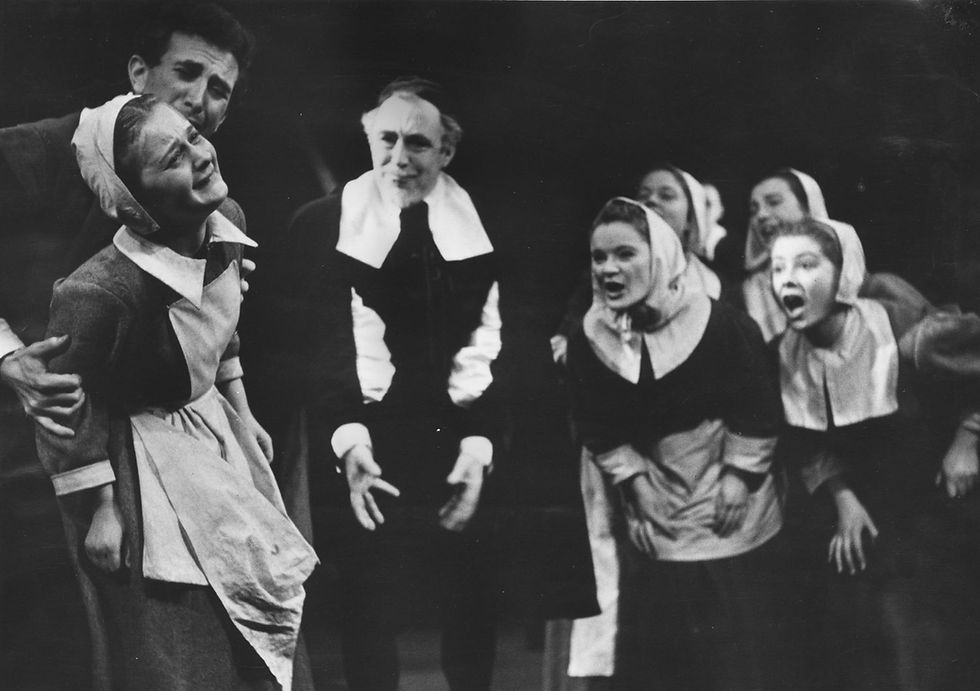On Andrew Lloyd Webber's Britishness- Part 1
- Ryan C. Tittle

- Jul 30, 2022
- 3 min read
Updated: Sep 21, 2022
In the 1960s-70s, the world of musical theatre changed rapidly. The introduction of rock and roll all but decimated the days when a showtune would be a number one hit on the radio. Show music largely did not follow into popular forms in the 1960s, with the notable exceptions of Hair on Broadway and Your Own Thing Off-Broadway. However, one composer-lyricist team was bringing rock to theatres and making a killing in the process.

(Now Lord) Andrew Lloyd Webber and (now Sir) Tim Rice collaborated on three sung-through rock musicals from the late sixties to the late seventies. Joseph and the Amazing Technicolor Dreamcoat began its life as a pop cantata for schools, but it eventually received glitzy productions on Broadway, in the West End, and as a film for home video. Jesus Christ Superstar and Evita followed Tommy’s mold as a successful concept album, but both eventually straddled the Atlantic onstage and were made into three successful films, two for cinemas and one for home video. But the relationship of the team that wrote them had soured by 1975. Rice abandoned Lloyd Webber on his flop Jeeves (later reworked as By Jeeves) and Lloyd Webber felt forced into the work on Eva Peron.
On the lookout for other projects, one came about as the result of Andrew losing a soccer bet against his cellist brother Julian. Andrew’s punishment became an album, Variations. He wrote 24 rock’n’roll variations on Niccolo Paganini’s 24th Caprice in A Minor, to be led by Julian on the cello. The album was a rock-classical crossover hit and the opening track became the theme song for The South Bank Show.
Next, Lloyd Webber met lyricist Don Black, who had won an Academy Award for his song for Born Free. The two independently had wanted to write something for an English female character. The result was a song cycle—Tell Me on a Sunday—the concept album of which in 1980 told the story of a British woman in various states of romantic entanglement with American men. It spawned the hit singles “Take That Look Off Your Face” and “Tell Me on a Sunday.” A concert of the cycle was also performed on the BBC.

It was Cameron Mackintosh, the producer of Lloyd Webber’s next show Cats, who recommended Lloyd Webber pair the two works together for an evening entitled Song and Dance. Billed in the West End as a “Concert for the Theatre,” Act I was Tell Me on a Sunday featuring Marti Webb, who had recorded the album and Act II was Variations, a ballet featuring Wayne Sleep. Only at the end did song and dance come together in the touching final number “When You Want to Fall in Love.” Song and Dance ran for years in London, a live recording of the opening night performance served as the Original Cast Album and, in the final year of the run, a revised version was recorded for television starring Sarah Brightman.

To translate the work for Broadway, Richard Maltby, Jr. was hired to direct the show and pen “additional lyrics,” much to Don Black’s chagrin. Maltby gave the characters names—Emma and Joe—the latter being one of Emma’s offstage boyfriends from the first act who gets his own story in the second. Maltby attempted to meld the evening together as some kind of experimental full-length musical, but the framework was essentially the same. One of the later “Variations” from the evening became the first act Overture and “When You Want to Fall in Love” was transformed into a first act song called “Unexpected Song,” which was introduced in the West End late into its run. The result was a mixed bag. Critics and audiences both equally loved Bernadette Peters in the role of Emma and, while they appreciated the steps of Christopher d’Ambroise and his company of dancers, the evening was considered top-heavy and, even then, beneath Ms. Peters’ talents.
Today, Tell Me on a Sunday gets performed by itself as a single evening’s entertainment most often. Variations was recorded in a symphonic version years after the original. Below is Brightman's version of "Unexpected Song."








Comments